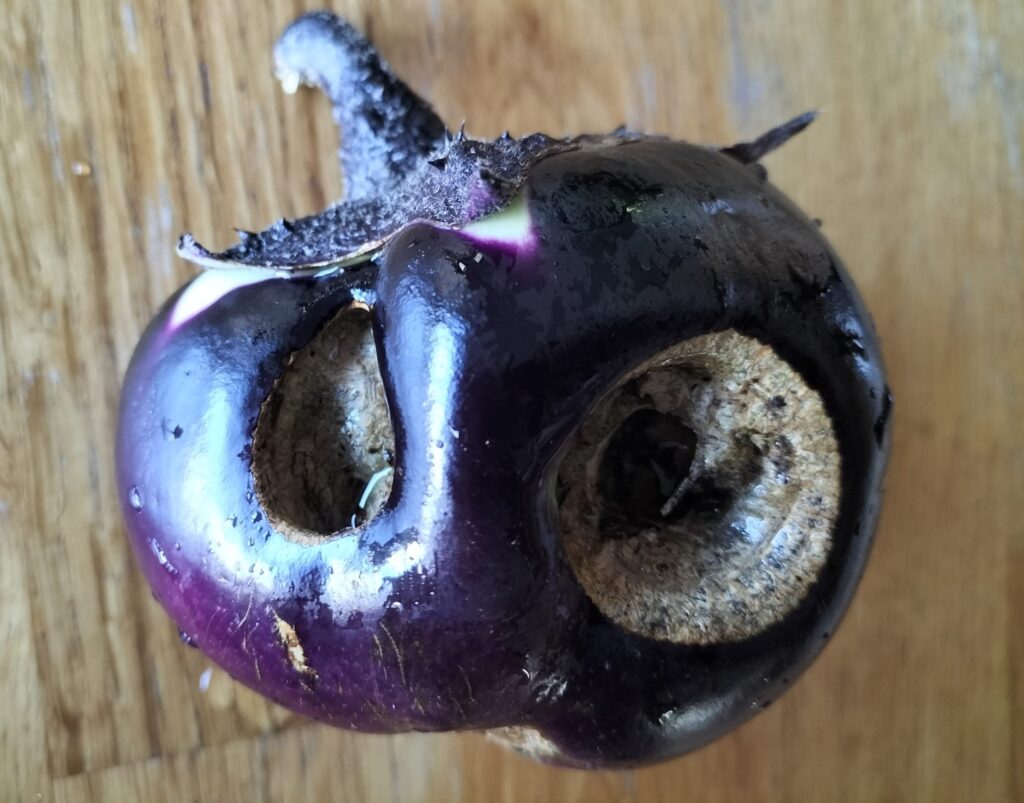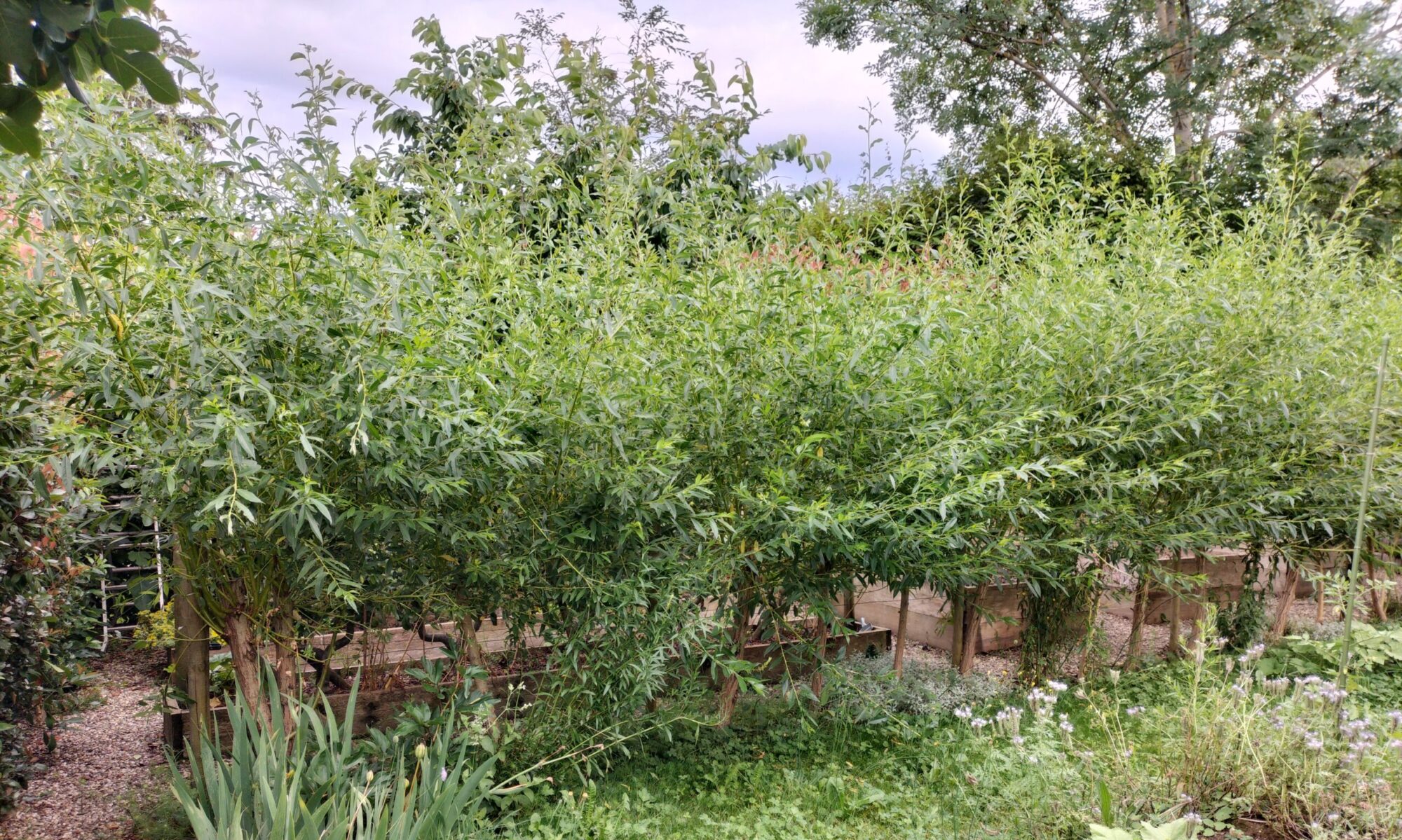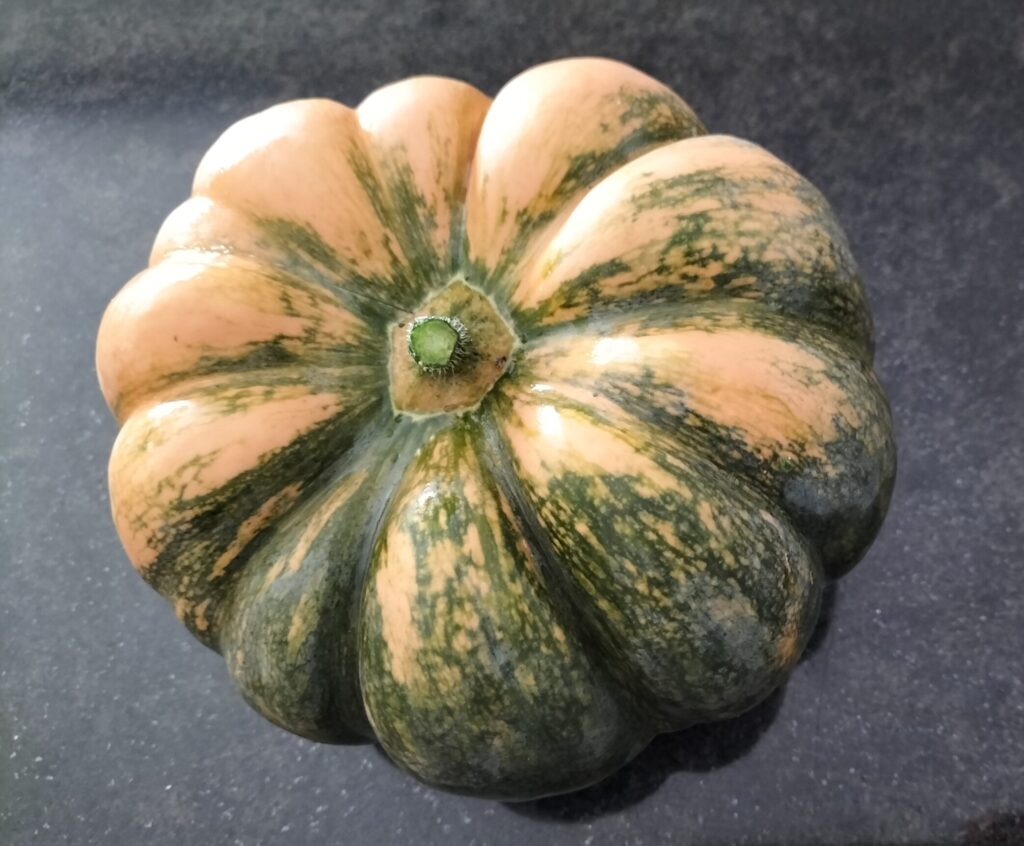
This aubergine closely resembles the ones I write about below.
My daughter recently queried a statistic she read in a fundraising magazine: 17% of the Swiss population have been subject to racial discrimination. She wondered whether a more helpful statistic might be to know what proportion of the Swiss BAME population has been subject to racial discrimination, but as I pointed out to her, we tend to only really care about what happens to people when we can identify with them ourselves. If the charity in question wants to raise money from the average, probably white, Swiss person, it needs to articulate the problem from the perspective of the Swiss population as a whole.
I thought back to this discussion the other day when I was harvesting two small, sorry-looking aubergines. As previously mentioned, the slugs have had a bumper year in my garden, and these pathetic specimens were not spared. The slugs had eaten their way right through them, creating tunnels for the convenience of other insects looking for a home. I took out my knife and started to cut out the eaten parts in order to salvage what I could of the remaining flesh. I displaced a woodlouse from the first aubergine, but didn’t think much of it. When I cut into the second aubergine, however, I discovered a whole woodlouse family with a few tiny woodlice. I felt absolutely dreadful, I had not only destroyed their home but also broken up the family. I made a pathetic attempt to reunite them as I put the remains carefully in the compost heap.
I know this probably sounds absurd, but I identified strongly with the woodlouse mother and her care for her offspring. I realise that this is anthropomorphism taken to an extreme, but I’m a sensitive soul, and it’s how I felt.
Who is my neighbour?


